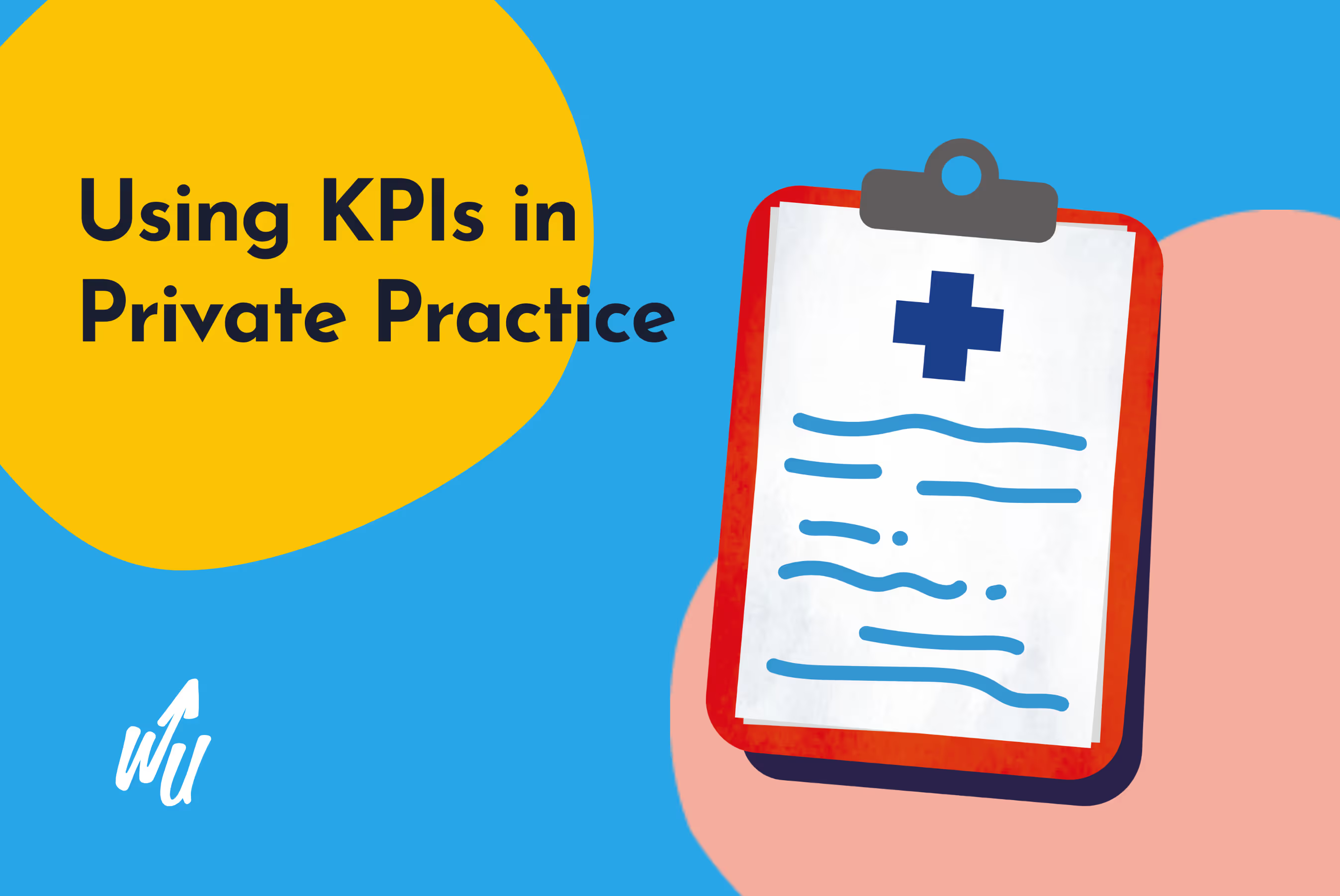The decision to offer a free initial consultation may be easier for you if you are an established therapist.
But if you’re just starting in private practice, the decision might not be so easy.
Free consultations are a great way to let potential clients meet you and determine if you're a good fit, but you might be concerned about whether they will hurt your business.
This question comes up a lot, so we asked Dr Aaron Balick, a psychotherapist and director of Stillpoint, for his view on what is definitely not a "yes-or-no" question.
In this guest post, Aaron covers:
- What you should consider before offering a free consultation
- What the benefits of offering a free consultation are
- Reasons why you might not want to offer a free consultation
- Alternatives to free consultations
The First Therapy Session: To charge or not to charge
The decision whether to charge for your first therapy session or not tends to be more challenging for therapists and counsellors than those in other fields.
Instead of simply seeing these choices as practical, we tend to think about their underlying meaning. For example, while most people organise holidays around their other responsibilities without any problems, therapists must consider how their absence may affect their clients and prepare accordingly.
Most self-employed people understand that they need to promote and market themselves, network, and engage in activities to ensure the sustainability of their businesses. Therapists find it more challenging to do these things.
Necessary activities for other freelancers, like asking for testimonials, giving kickbacks for referrals, or offering "bundles" of services at a discounted price, are inconceivable to most therapists.
But many of these options are a "no-no" because of the need to maintain our client's confidentiality.
The ethical frameworks under which most therapists work prevent them from entering into any kind of exploitative relationship with clients, including asking for public testimonials, recommendations, or rewarding referrals.
For these reasons (and many more), deciding whether or not to charge for a first session is complicated – but worth thinking through.
What Should You Consider Before Offering a Free Initial Consultation?
While it's excellent that therapists wish to put their client's needs first, it's not so great when this happens at a therapist’s expense (financially, psychologically, and emotionally).
For example, while many of us are happy to offer reduced-fee sessions for those in need, we may not have fully considered how this might affect us.
You may subsidise your practice at your own expense if you ignore factors such as overheads, workload, and whether your reduced rate will cover your standard rate.
Struggling to make ends meet, taking on more clients to fix this, or finding that your revenue does not add up to a living wage can cause more trouble for you than a negative bank balance.
Free sessions aren't actually free. There is a cost.
If you choose to offer them, you'll want to know the cost. You can work this out by calculating the potential revenue lost from "free hours" across a year, adding in your overheads, and seeing the fiscal reality of that choice.
What are the Benefits of Offering a Free Initial Consultation?
Arguments for free initial sessions tend to focus on the benefits to clients, namely that it makes therapy much more accessible, especially to those struggling financially.
Finding the right therapist is a challenge at the best of times.
A wealth of research points out that the therapeutic relationship itself is the most crucial factor for positive outcomes. So anything you can do to ensure a good match is beneficial. The information gained from a website or directory profile isn’t enough to get the measure of how that relationship may pan out.
If clients want a better idea of what their therapist may be like, they will need to shop around – but shopping around four or five therapists at a full session price can result in a severe financial outlay before even getting started.
For these reasons offering the first session for free is seen as the ethical thing to do.
If offering a free first session were a universal practice, it would help clients find the right therapist and arguably increase the probability of better outcomes. Such a policy may also help therapists find clients that are a good fit for them.
Therapists may also consider the cost of a free session not so much as lost revenue but as a marketing cost.
Since therapists are unlikely to market themselves in more traditional ways, offering a free session allows you to show potential clients who you are and how you work.
By removing the financial obstacle, both parties can assess whether there is a match without feeling resentment or obligation.
Why Shouldn't You Offer a Free Initial Consultation?
Arguments against free initial sessions go back a long way and are worth thinking through, even if you're already convinced.
Charging for sessions is a way that therapists value their work, themselves, and their time. After all, initial sessions require a lot from you (arguably more so than regular ones). That time and effort shouldn't just be given away for nothing.
Other professionals like lawyers or dentists rarely offer their first session for free, so why should therapists be different?
Session fees may also communicate value to your potential clients, who may be more dismissive of a free session and less likely to attend it.
Also, by not charging, you may deny the financial reality of the relationship from the beginning – instead of including it in the package of private therapy.
Basically, charging helps set boundaries for both of you from the start.
Those who support free sessions argue that many of these arguments are justifications for preserving the therapist's self-interest.
While you will have to judge that for yourself, "self-interest" is not such a wrong phrase if it means sticking to proper boundaries for yourself and for your clients.
Alternatives to a Free Initial Consultation
As an independent practitioner, I have tried various options over the years and have settled on what works for me.
When we opened Stillpoint Spaces London, we wanted to find creative ways to address this situation as an organisation with more significant outreach potential.
By rethinking ways to connect with therapists outside the traditional consultation room, we were able to accomplish this.
We did this through public education events and workshops. The most successful of these was the "Speed Date a Therapist" events we ran each year that allowed members of the public to have ten minutes with up to five therapists in a row.
These were not mini-therapy sessions. They were opportunities to create introductions and allow people to meet a potential therapist without all the psychological and financial hurdles that are usually in the way.
After all, ten minutes for free is a lot easier to try out than fifty minutes for a fee: and you can learn a surprising amount in ten minutes.
For many members of the public, this would be their first taste of therapy and a first step that they may follow up on later when they are ready.
For others, a match was made right there, followed up by regular sessions. Thinking outside the box like this can help us get out of that binary free or fee trap and try something different.
Chances are that you want to do the right thing for yourself and your clients. There are many ways to go about that – and I'm sure you can find the right one for you.
Here are some other ideas that therapists have tried over the years that attempt to balance the pros and cons of the free initial session:
- Offer a free no-obligation initial phone conversation that allows for a "pre-meet". These conversations are usually shorter than a regular session but still enable questions to be asked on both sides to see if both sides want to take the next step.
- A reduced-price first session can lower the bar for your potential client while ensuring that you are at least breaking even. Some therapists offer a first session at half-price.
- Offer a more extended first session at your same regular price. This reduces the feeling of being rushed during the first session and gives you both time to work out if you wish to continue.
Don't be afraid to try a few different things until you find the best method for you and your clients. Just make sure you are clear and transparent each time.
Different approaches work for different people, and you should find the one that best suits you.
So long as you make sure you cover all bases, you can find a creative solution that works for you and your clients.
Dr Aaron Balick is a psychotherapist, supervisor, and director of Stillpoint, an international psychology hub.



Join over 50,000 clinicians that we've helped using WriteUpp
Start my free trial






